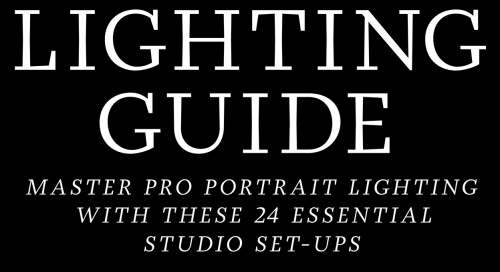Scrapbox-in-the-attic - Assorted References




More Posts from Scrapbox-in-the-attic and Others


I’ve had a HELL of a day trying to figure out skulls and facial structure, but here’s some stuff I did about proportions and shading and coloring. Face structure was referenced from this,
Shading locations I actually picked up from a thing that’s about makeup I’m pretty sure, but it gave some good results so I rolled with it. And the info on hue in faces are what I applied from this post. Gives the skin some more natural glow? Play around with settings and stuff.



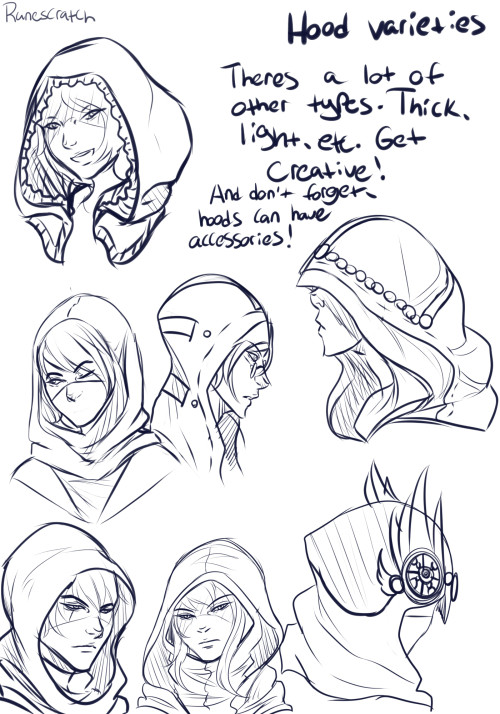
I’ve been asked a lot about how I draw hoods, mostly Talon’s hood, so I hope this helps a little? Just a pretty basic thing but hey there ya go
Hoods are pretty cool, they usually have a lot of variety in how they can look (and sometimes people even wear two hoods at once) so just get creative with it and have fun


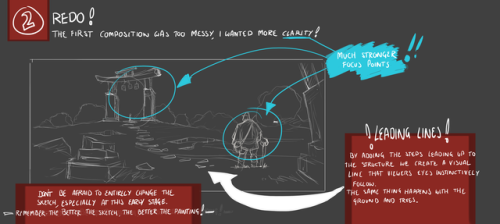


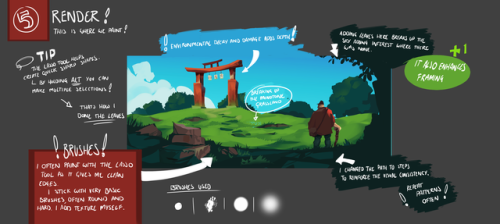


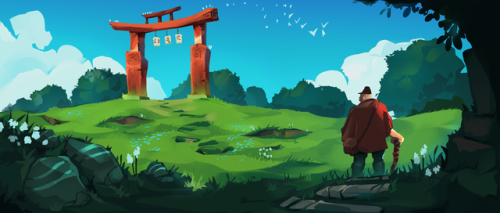
!! ART TUTORIAL !!
This is my first real attempt at doing a walkthrough for one of my landscapes, I’d really appreciate some feedback!
it is pretty much my workflow process, there’s always something slightly big to change during render I should have solved earlier!
Anyway everyone, feel free to message me if you have any questions and I hope this helps anyone!!
“Where should I host my webcomic?”
If you’re making a new webcomic it’s often difficult to decide where to put it, especially since if you need this kind of resource you’re probably just starting out. So, here’s some info I’ve gathered on some popular hosting platforms and their benefits/downsides. I’m not an artist, so this isn’t an inside scoop, but I’ve put some research into this and I know what artists have said about their experiences. All of these platforms are free and public to use unless noted otherwise.
Tapas (aka Tapastic)
Tapas is a website and app that is made for hosting webcomics.
Example - Example
Benefits:
VERY well known, one the most popular hosting platforms around.
It’s mostly set up so users check out as many comics as possible -> easier time attracting readership.
Once you start getting subscriptions it starts figuring out what other comics get similar readership. It’ll start recommending your comic and you’ll get more consistent readers.
It’s very easy to use and smoothly designed. Pefect for new artists.
There’s kind of a social aspect to it? I don’t know how to describe it. Every user has a page you can comment on and there’s a robust comment system on pages/episodes.
TAPAS TIPPING. A brilliant, original system. Users can watch ads for “tapas coins”, which they can “tip” towards their favorite artists! This turns into free real money for you. You can also apply to tapas premium to make a comic or novel that’s unlocked per episode with coins. (novels are only acessible on the tapas app, which it seems to be moving towards)
Downsides:
It’s very reader-centered. Not so much on artists.
In fact it recently tried a really sketchy move where it added a clause to its terms of service potentially restricting where else artists could post even the free comics. It was later removed after sitewide backlash and mass comic removal.
No control over how your website appears. You get to make a banner and an icon, that’s it. This could be a good thing, since you don’t have to worry about it and its theme works very well.
Sometimes it’s a little buggy. I’ve noticed a lot of artists post with links to other platforms and apologies because it won’t let them add an update.
How to Join:
Create a free account.
Create your comic.
LINE Webtoon
Example - Example
Webtoons is a free website and app for hosting webcomics.
Benefits:
Similar to Tapas, but with a more high-class feel.
(By that I mean I see very few debut artists and more professionals there.)
It’s about as easy to use, and it’s becoming much more well-known, especially after the mass exodus to Webtoons after the Tapas TOS incident. They also advertise comics on others’ pages with similar readership, but it’s kinda skewed towards comics that already have a lot of readers. I get the feeling that it’s focused on providing a good experience for its users more than reading a lot of comics.
You still cannot control how your site works, but again, what they give you is very good.
Every month the staff chooses some comics to become “featured” artists. Featured Artists make $2000/month as long as they don’t post on any other webcomic sites. As the name implies, they also advertise you more. They really like to mention this benefit.
Downsides:
You might not get any traffic? Mostly the biggest problem is just having to use its framework which is designed for webcomics.
How to Join:
Create a free account.
Create your comic.
Smackjeeves
Example - Example
Smackjeeves is yet another free host for webcomics.
Benefits:
You get a subdomain automatically, which you can heavily customize the appearance of.
It has a very social format compared other hosts.
Smackjeeves also recommends comics, but not on other comics’ pages. You can explore comics throughtout the site.
Downsides:
I personally find the website very confusing. I can’t imagine it’s much better on the artist side of things.
How to Join:
Create a free account.
Create your comic.
Tumblr
Example - Example
You’re on it! Tumblr is a social media platfrom that is based on users having one or more blogs to create streams of posts with.
Benefits:
Tumblr blogs already have a “page” format for scrolling through chunks of posts. Just set your post per page ratio to one and voila! Already looks very similar to actual webomic sites.
One of the highlights of Tumblr as a social media platform is being able to manually edit your blog’s HTML. There are even publicly available user-made themes for webcomics.
It’s a social media platform! It’s very easy to interact with your fanbase.
A lot of webcomic fans use Tumblr - it’s well-suited to fandom in particular.
Your updates would in reality be posts on a blog. Readers might reblog them and share your work with other people. It’s by far the best platform for word-of-mouth advertisement.
If you’re reading this you probably already know how to use it.
Downsides:
Tumblr is just … not made for webcomics. At all.
Archiving in particular is very counterintuitive for webcomics. Page urls are not static - “page 2” is the second-most recent update, not the second page. In order to find an individual update you have to actually page back to it or scroll through the default uneditable archive.
How to Join:
Get a free account.
If you already have one, you can simply create a sideblog. But you might want a whole account just for the comic - outgoing likes and asks show up as your main blog, so if you’re using a sideblog it exposes your personal/main blog whenever you interact with fans.
Edit your blog’s theme extensively.
Begin posting your updates.
Custom Website
Example - Example
No external host. Make your own website, just for your comic!
Benefits:
ABSOLUTE CONTROL. You decide how it looks, how it works, and what features it has. Most webcomic sites have similar formats: prominent centered pages (and usually the current update on the “main” page), first/previous/next/recent buttons, an archive, an about page, information on when it updates, etc. But in general everything is 100% up to you.
I cannot stress that ^^^ enough.
No license or restrictions of any kind. Except, like, laws. Obviously.
Many features are easy to add to your website. Disqus (Insertable commenting platform. Sorta structured like Reddit) is getting more and more popular and I haven’t heard anyone mention it costing anything.
You can get ad revenue from your site, and 100% of it goes to you.
Downsides:
Unless you have the skills to make a functional professional website on your own, it costs money. Plus, there’s the relatively small monthly/yearly cost of reserving a domain name.
Finicky and difficult to fix problems. When Tapas eats your update, you wait a day or two before it works again. When the commenting system disappears, you have to call whoever made your website or fix it yourself.
There’s no real way of attracting readership (and ad revenue!) other than word-of-mouth or paying for ads. No handy recommendation system in place. This is ONLY a move for someone who already has a guaranteed reader base. However, almost every popular comic artist eventually gets their own site so it must be worth it past a certain threshold.
How to Join:
Get a domain name and a website.
Post your comic on your new website.
Advertise the heck out of it.
SpiderForest
Example - Example
SpiderForest is a collective of comic artists, not a public service. You must apply to join.
Benefits:
The application process isn’t very strict; it’s there so that it isn’t flooded with low-quality comics. Not sure how I feel about it but it works pretty well for them.
You get the benefits of any vetted group. They advertise you on their main site, and being a member adds credibility to your work.
Even though it is an exclusive group, its policy allows unlimited mirrors, so you can still use anything else you want.
Downsides:
In order to be a member you have to have at least one mirror on a custom site they can link to or host directly on their site. Not much of a downside but still.
Your comic should already exist somewhere else. They generally won’t approve pitches for potential projects, unless you’re already an established creator with previous work to show instead.
It’s not as well known? It’s still pretty high up there.
How to Join:
Apply using the link at the top of their main page.
Be accepted.
Post your comic on your associated Spiderworks site.
Hiveworks
Example - Example
Hiveworks is a for-profit professional organization. You don’t ask to be a member, Hiveworks asks you to join. There’s like a 95% chance you should SAY YES.
Benefits:
Hiveworks gives you a free website (see: custom website benefits)
All Hiveworks sites have a little sidebar advertising other hiveworks comics. They also advertise your comic on their main aggregate site.
They look for good comics, it’s their job. Having their logo on your site is a testament to the quality of your work. You’ll get so many readers and comissions, trust me on this one.
Downsides:
You do have to provide some art to them. They’ll sell merch of your comic (which you get a large cut of!), and you need to provide icons and banners for them to advertise you with. When they do well, you do well, and vice versa.
If you are a member you cannot host your comic any new sites, especially their biggest competitor, SpiderForest. This contract lasts a while. Sometimes you get to keep your existing ones, though.
^^ Contracts. There’s still the tiniest bit of risk, but it’s a reputable organization.
How to Join:
Be asked to by Hiveworks.
Negotiate a contract.
This is all of the things I have been able to learn as a reader. If one or more of them sounds promising for you, try and send a message asking an artist who uses these platforms for what they think. Good luck!

I might've added the BG3 Art Book to my dnd assets stash
It' 100% does not have things like the 5e players' handbook + 5e’s character sheet, several gm guides, critical role's explorer's guide to wildmount, baldur's gate and waterdeep city encounters, 101 potions and their effects, volo's guide to monsters, both of xanathar's guides, a bunch of other encounters, one shots, and class builds
In no way are there any pdf’s relating to any wizard who may or may not be residing on any coast
(Edit that I’ve moved the folder to the new link above! So if you catch a different version of this post that link won’t work anymore!)

You think “oh it would be useful to learn how to identify my thrifted yarn and clothing” and before you know it you’ve been recruited by fiber witches giving out their spells willy nilly, again
need refs/inspo for period clothing?
here you go:
Medieval (9th-15th century):
10th century and earlier
Romance (1000-1250)
11th century
12th century
13th century
more 13th century
14th century
more 14th
15th century
and more 15th century
Gothic (1150-1550)
Renaissance (1520-1650)
16th & 17th century
16th century
more 16th
Tudors (1500-1550)
more Tudors
Elizabethan Period (1558-1603)
Jacobean Era (1603-1625)
17th century
more 17th century
and again
and even more
this won’t stop
Baroque (1600-1750)
Georgian Period (1714-1830):
18th century
more 18th century
18th century women’s fashion
18th century men’s fashion
Rococo (1720-1770)
Classicism (1770-1790)
children 18th-19th century
Regency Preiod (1811-1820)/ Empire (1800-1820s):
1790-1820s
more stuff on regency and georgian era
even more
that’s not enough regency
and more
how is there so much
early 19th century men’s wear
early 19th century women’s wear
Victorian Period (1837-1901):
Romantic Era (1820-1840s)
Civil War Era/1850-1860s
1870-1890s
more victorian
Edwardian Period (1901-1910):
1900-1910s
Belle Epoque (1880-1910s)
more edwardian/belle époque
Modern:
1910s-1920s [Fashion between the World Wars]
1920s
more roaring 20s
so much 20s
1920s hairstyles
1930s
1930-1940s
1930-1950s
1950s
more 50s
1960s
1960-1970s
1980s
lots of periods in one spot/fashion through centuries:
here, here, and here is almost everything (and properly ordered)
also here with lots of historic fashion magazines
100 years of beauty (includes lots of other cultures too!)
historic fashion
costumes of antiquity
more historical clothing
history of fashion
more history of fashion
“vintage” clothing
historic costumes
children’s historical fashion/toys
details
historic wedding dresses
historic assecoires (hats, shoes…)
hats
masks
parasols
lots of embroidery/jewlery
it indeed is western/european centric, I’m sorry for that, but for other cultures I simply don’t have so many references
ALSO note that most of the pictures show historical clothing from the upper classes or more festive clothing of the lower/working class because normal working clothes wouldn’t survive for such a long time, and the clothes were often re-used over and over again!
-
 inspriteofitall liked this · 1 month ago
inspriteofitall liked this · 1 month ago -
 nope-astrology-nope reblogged this · 1 month ago
nope-astrology-nope reblogged this · 1 month ago -
 azzysflowergarden reblogged this · 1 month ago
azzysflowergarden reblogged this · 1 month ago -
 azzysflowergarden liked this · 1 month ago
azzysflowergarden liked this · 1 month ago -
 g-rmlin reblogged this · 1 month ago
g-rmlin reblogged this · 1 month ago -
 g-rmlin liked this · 1 month ago
g-rmlin liked this · 1 month ago -
 ad-cn liked this · 1 month ago
ad-cn liked this · 1 month ago -
 a-lost-soul1204 liked this · 1 month ago
a-lost-soul1204 liked this · 1 month ago -
 fortheloveofwii liked this · 1 month ago
fortheloveofwii liked this · 1 month ago -
 tenkaaa liked this · 1 month ago
tenkaaa liked this · 1 month ago -
 galipstuf reblogged this · 1 month ago
galipstuf reblogged this · 1 month ago -
 fax-for reblogged this · 1 month ago
fax-for reblogged this · 1 month ago -
 fax-for liked this · 1 month ago
fax-for liked this · 1 month ago -
 loup-warrrior93 liked this · 1 month ago
loup-warrrior93 liked this · 1 month ago -
 thatlittledandere reblogged this · 1 month ago
thatlittledandere reblogged this · 1 month ago -
 myskoxen liked this · 1 month ago
myskoxen liked this · 1 month ago -
 sarcasticshae liked this · 1 month ago
sarcasticshae liked this · 1 month ago -
 shawdowgrey3 liked this · 1 month ago
shawdowgrey3 liked this · 1 month ago -
 shawdowgrey3 reblogged this · 1 month ago
shawdowgrey3 reblogged this · 1 month ago -
 vypwosh liked this · 1 month ago
vypwosh liked this · 1 month ago -
 fadingwerewolftimemachine reblogged this · 1 month ago
fadingwerewolftimemachine reblogged this · 1 month ago -
 fadingwerewolftimemachine liked this · 1 month ago
fadingwerewolftimemachine liked this · 1 month ago -
 eldritchratking reblogged this · 1 month ago
eldritchratking reblogged this · 1 month ago -
 alexa-alcantara reblogged this · 1 month ago
alexa-alcantara reblogged this · 1 month ago -
 daydream-corpse liked this · 1 month ago
daydream-corpse liked this · 1 month ago -
 of-nodus-tollens liked this · 1 month ago
of-nodus-tollens liked this · 1 month ago -
 thereallysteadfastnarnian reblogged this · 1 month ago
thereallysteadfastnarnian reblogged this · 1 month ago -
 thesteadfastnarnian reblogged this · 1 month ago
thesteadfastnarnian reblogged this · 1 month ago -
 thesteadfastnarnian liked this · 1 month ago
thesteadfastnarnian liked this · 1 month ago -
 aim-and-ignights reblogged this · 1 month ago
aim-and-ignights reblogged this · 1 month ago -
 aim-and-ignights liked this · 1 month ago
aim-and-ignights liked this · 1 month ago -
 scheming-pangolin reblogged this · 1 month ago
scheming-pangolin reblogged this · 1 month ago -
 starburst-motif liked this · 1 month ago
starburst-motif liked this · 1 month ago -
 sillylilzebra liked this · 1 month ago
sillylilzebra liked this · 1 month ago -
 bittercherryblossom liked this · 1 month ago
bittercherryblossom liked this · 1 month ago -
 nonemillion liked this · 1 month ago
nonemillion liked this · 1 month ago -
 sluthut6000 liked this · 1 month ago
sluthut6000 liked this · 1 month ago -
 cherryaire liked this · 1 month ago
cherryaire liked this · 1 month ago -
 venus-fogged reblogged this · 1 month ago
venus-fogged reblogged this · 1 month ago -
 venus-fogged liked this · 1 month ago
venus-fogged liked this · 1 month ago -
 geekytealover liked this · 1 month ago
geekytealover liked this · 1 month ago -
 friendlybageldemon liked this · 1 month ago
friendlybageldemon liked this · 1 month ago -
 streepytime liked this · 1 month ago
streepytime liked this · 1 month ago -
 selenelion-rain reblogged this · 1 month ago
selenelion-rain reblogged this · 1 month ago -
 bublp0pr liked this · 1 month ago
bublp0pr liked this · 1 month ago -
 ladruidking liked this · 1 month ago
ladruidking liked this · 1 month ago -
 the-vultures-hunt reblogged this · 1 month ago
the-vultures-hunt reblogged this · 1 month ago -
 the-vultures-hunt liked this · 1 month ago
the-vultures-hunt liked this · 1 month ago -
 weasleyworshipper reblogged this · 1 month ago
weasleyworshipper reblogged this · 1 month ago -
 qiyan liked this · 1 month ago
qiyan liked this · 1 month ago
